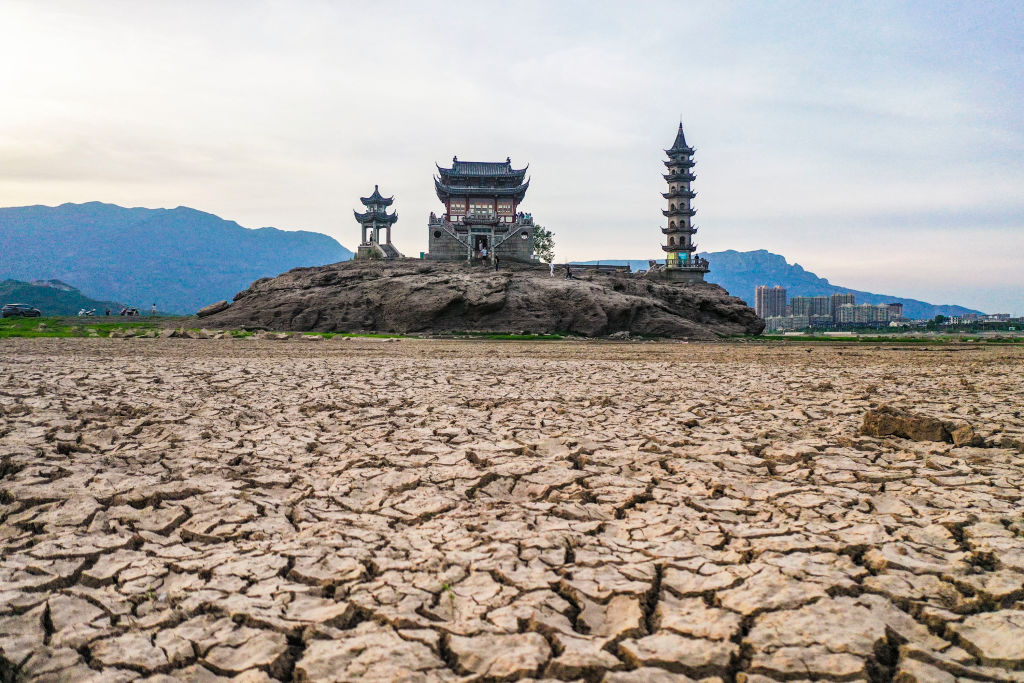China facing devastating impacts from climate change
Posted By Stephan Robin on September 27, 2022 @ 06:00

Climate change has been, and will continue to be, a persistent and growing challenge for many parts of the world. Over recent weeks there has been a steady flow of striking imagery of the impacts of extreme weather in China—fishing ships grounded [1] on the Poyang Lake floor, the outskirts of city districts inundated [2] with flood waters, and the drying up of [3] parts of the Yangtze. In isolation, each of those climate hazards is a reminder of the vulnerability of human systems to environmental changes. Together, however, they constitute an urgent monition of the serious consequences of climate change for national security interests.
According to UN data [4], China is already the most exposed country in the Asia–Pacific in terms of the number of climate disasters and the number of affected people—by mid-century, 85% of China’s population will be exposed to climate-related hazards. Such hazards already cost the Chinese economy billions of yuan annually and cause major disruptions to human settlements and activities. These impacts deserve greater attention from policy analysts, particularly given that they’ll increasingly shape China’s economic, foreign and security policy choices in coming decades.
Sea-level rise will undermine access to fresh water for China’s coastal cities and increase the likelihood of flooding in China’s highly urbanised delta regions. Droughts are projected to become more frequent, more extreme and longer lasting, juxtaposed with increasingly intense downpours that will inundate non-coastal regions. Wildfires are also projected to increase in frequency and severity, especially in eastern China. China’s rivers, which have historically been critical to the county’s economic and political development, will experience multiple, overlapping climate (and non-climate) impacts.
An ASPI report [5] released today provides a preliminary survey of the literature on the impact that climate change will have on China. It concludes that relatively little attention has been paid to this important topic, which is surprising, given China’s key role in international climate-change debates, immense importance in the global economy and major geostrategic relevance. That’s especially true for rapid-onset hazards such as flooding and wildfires, which remain relatively understudied compared to slow-onset impacts such as changes in mean temperature and precipitation. Much of the scientific literature surveyed in the report notes that limited data and methodological challenges are significant barriers to better understanding the climate impacts and consequences for China.
There’s also a lack of secondary research integrating the impacts of climate hazards affecting China at local and national levels alongside the climate disruptions to globally integrated systems such as trade, technology and people flows. With a specific examination of China’s food and energy security, the report concludes that very little, if any, research address the complete range of climate-change impacts on these systems central to the country’s economic and political wellbeing. For the most part, research in these areas is highly siloed in nature and most makes no attempt to take a whole-of-system view of China’s food and energy security in a climate-changing world.
On one level, this is understandable. Building a comprehensive sense of the earth’s changing climate is hard; there are many different parts that interact with each other in complex ways. Drawing the connections between this complex picture and our even more complicated human systems is harder still. But in a world where the costs incurred by climate change will almost certainly rise for at least the remainder of the 21st century, building an understanding of these costs must be a research priority.
Climate change will be one of the most, if not the most, profoundly destabilising process in modern history. For policymakers in Australia, China and around the world to navigate those disruptions, there’s a need for holistic and multidisciplinary research that captures the pathways for simultaneous hazards to compound each other, with cascading impacts at both the national and the global scale. As this report identifies, that work still needs to be done.
Article printed from The Strategist: https://www.aspistrategist.org.au
URL to article: https://www.aspistrategist.org.au/china-facing-devastating-impacts-from-climate-change/
URLs in this post:
[1] grounded: https://www.reuters.com/world/china/chinas-shrinking-kidney-lake-lays-bare-growing-climate-challenges-2022-08-24/
[2] inundated: https://www.scmp.com/news/china/science/article/3182506/chinas-southern-provinces-raise-alerts-rivers-flooding-break
[3] drying up of: https://www.theguardian.com/world/2022/aug/22/china-drought-causes-yangtze-river-to-dry-up-sparking-shortage-of-hydropower
[4] UN data: https://rrp.unescap.org/hazard-hotspots/climate-related-and-biological-multi-hazard#paragraph-id--1715
[5] ASPI report: https://www.aspi.org.au/report/assessing-groundwork-surveying-impacts-climate-change-china
Click here to print.